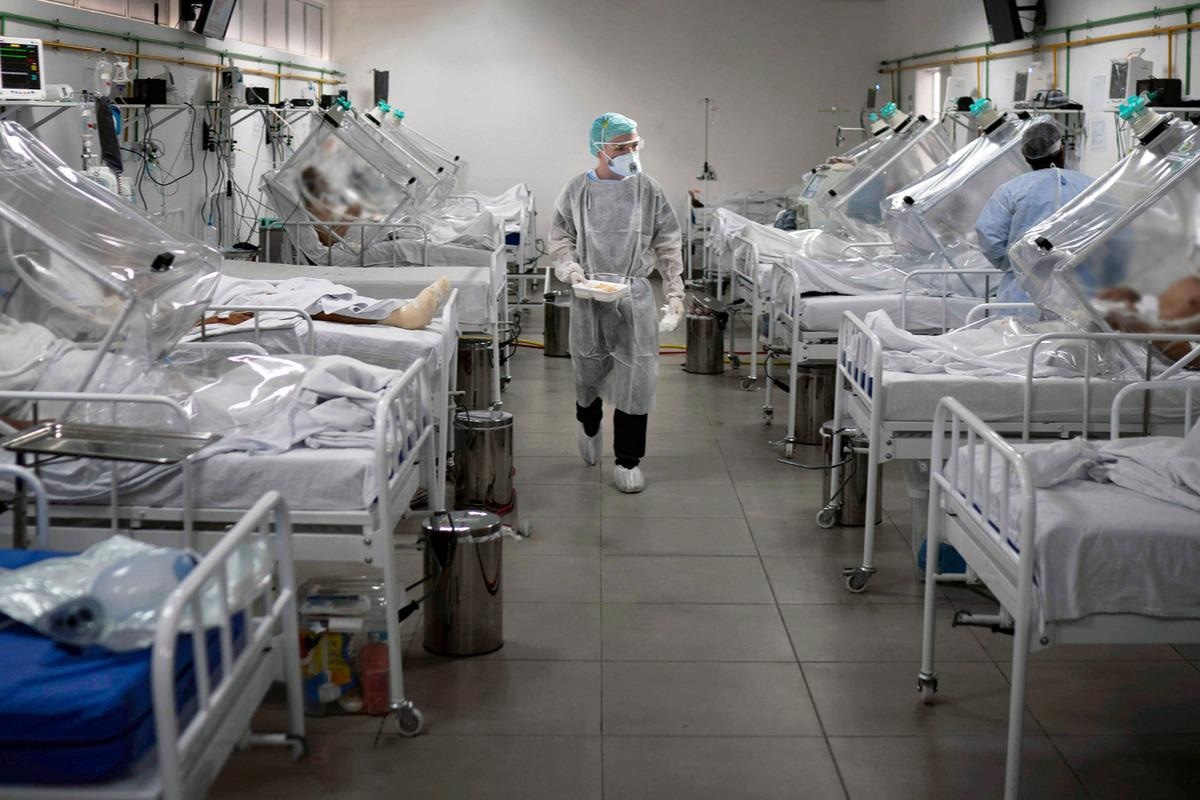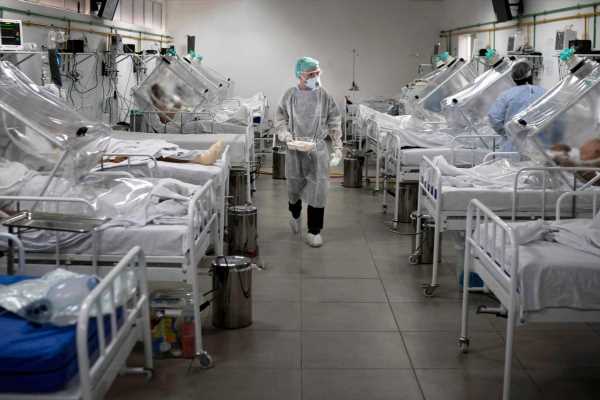A neuropsychological survey and cognitive screening performed by the Mayo Clinic scientists have recently revealed high rates of self-reported cognitive impairment in both ambulatory and hospitalized coronavirus disease 2019 (COVID-19) patients during the recovery phase.
 Study: Neurocognitive Screening in Patients Following SARS-CoV-2 Infection: Tools for Triage. Image Credit: faboi/Shutterstock
Study: Neurocognitive Screening in Patients Following SARS-CoV-2 Infection: Tools for Triage. Image Credit: faboi/Shutterstock
While hospitalized patients show higher rates of focal cognitive decline, neuropsychiatric symptoms are more commonly observed in ambulatory patients.
The study is currently available on the Research Square preprint* server while under consideration for publication at the BMC Neurology journal.
Background
Cognitive decline together with neuropsychiatric symptoms has commonly been observed in COVID-19 patients during the recovery phase. In this context, studies have shown different degrees of cognitive impairment among hospitalized and ambulatory patients. While focal neurologic injuries like ischemic and hemorrhagic strokes have commonly been observed in hospitalized patients, neuropsychiatric symptoms like anxiety, fatigue, weakness, and myalgia have mostly been reported by ambulatory patients.
Regarding risk factors, studies have suggested that the severity of acute infection cannot predict the cognitive outcomes during the recovery phase. However, studies that extensively assessed neuropsychological problems in patients seven to eight months after infection have revealed that hospitalized patients are more likely to experience impairment in cognitive performance (attention, memory, execution of work, and verbal fluency) than ambulatory patients.
In the current study, the scientists have evaluated patient-reported (subjective) and clinically tested (objective) neuropsychological problems in both ambulatory (outpatients) and hospitalized COVID-19 patients during the early recovery phase.
Study design
The study was conducted on a total of 102 patients, including 76 ambulatory and 26 hospitalized patients. A neuropsychological survey and a computerized neurocognitive test were performed remotely. In the survey, the subjective measures included attention, memory, anxiety, depression, fatigue, sleep disturbance, and pain.
The objective neuropsychological assessment was done by testing verbal and visual memory, psychomotor speed, reaction time, selective attention, shifting attention, and sustained attention.
Self-reported neuropsychological symptoms
The subjective neuropsychological assessment revealed similar rates of cognitive decline in ambulatory and hospitalized patients. Specifically, about 29% and 27% of ambulatory patients reported moderate-to-severe problems with attention and memory, respectively. Similarly, about 36% and 40% of hospitalized patients reported moderate-to-severe problems with attention and memory, respectively.
A strong correlation between self-reported attention and memory problems and perceived severity of neuropsychiatric symptoms (anxiety, depression, fatigue, sleep disorder, and pain) was observed in ambulatory patients.
Among hospitalized patients, a strong correlation was observed between self-reported attention problems and perceived severity of anxiety, sleep disorders, and fatigue. Similarly, self-reported memory problems showed a strong correlation with the perceived severity of sleep disorders.
Objective neurocognitive performance
A similar level of neurocognitive impairment was observed among ambulatory and hospitalized patients. However, a difference in performance was observed for specific cognitive domains between the groups.
A significantly higher impairment in visual memory and psychomotor speed was observed in hospitalized patients compared to that in ambulatory patients. While the performance of ambulatory patients on all tested neurocognitive domains was within the average range, the hospitalized patients had a low average performance on verbal memory, psychomotor speed, and reaction time.
Risk factors of neurocognitive impairment
To identify the risk factors associated with neurocognitive decline, the correlation between COVID-19-related demographic and clinical factors and visual memory and psychomotor speed performance was assessed.
In both ambulatory and hospitalized patients, no correlation was observed between visual memory performance and age, race, smoking status, and comorbidities (hypertension, diabetes, obesity, and coronary artery disease). However, a reduced psychomotor speed showed a strong correlation with diabetes and obesity. Regarding educational status, a strong correlation was observed between higher education and higher overall neurocognitive index and psychomotor speed.
Regarding the association between self-reported neuropsychiatric symptoms and cognitive performance in ambulatory patients, a strong correlation was observed between the lower overall neurocognitive index and higher rates of self-reported problems with attention, memory, anxiety, depression, fatigue, and pain. In contrast, no such correlation was observed in hospitalized patients.
Study significance
The study identifies a strong link between self-reported neuropsychiatric symptoms and clinically-tested neurocognitive performance in ambulatory COVID-19 patients, but not in hospitalized patients. The study also reveals that hospitalized COVID-19 patients are more susceptible to neurocognitive decline, highlighting the possible contribution of severe disease.
Given the study findings, the scientists suggest that neurocognitive screening of COVID-19 patients could provide valuable information, which could help determine the order of treatment. Such screening should be included in clinical trials.
*Important notice
Research Square publishes preliminary scientific reports that are not yet peer-reviewed, and therefore, should not be regarded as conclusive or treated as established information.
- Blackmon K. (2022). Neurocognitive Screening in Patients Following SARS-CoV-2 Infection: Tools for Triage. Research Square preprint server. doi: 10.21203/rs.3.rs-1127420/v1 https://www.researchsquare.com/article/rs-1127420/v1
Posted in: Medical Science News | Medical Research News | Disease/Infection News
Tags: Anxiety, Coronary Artery Disease, Coronavirus, Coronavirus Disease COVID-19, covid-19, Depression, Diabetes, Education, Fatigue, Neurology, Obesity, Pain, Research, Sleep, Sleep Disorder, Smoking

Written by
Dr. Sanchari Sinha Dutta
Dr. Sanchari Sinha Dutta is a science communicator who believes in spreading the power of science in every corner of the world. She has a Bachelor of Science (B.Sc.) degree and a Master's of Science (M.Sc.) in biology and human physiology. Following her Master's degree, Sanchari went on to study a Ph.D. in human physiology. She has authored more than 10 original research articles, all of which have been published in world renowned international journals.
Source: Read Full Article
